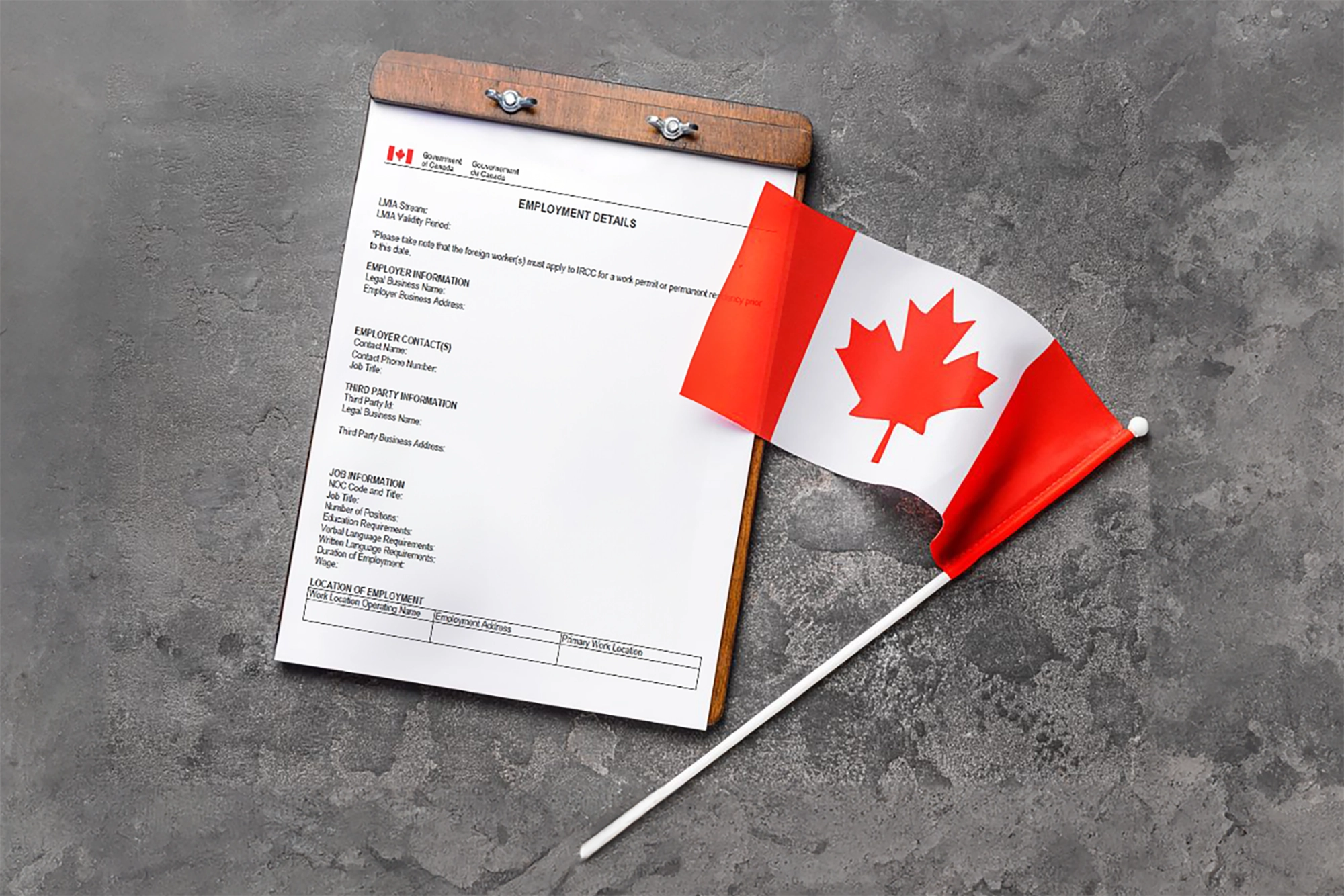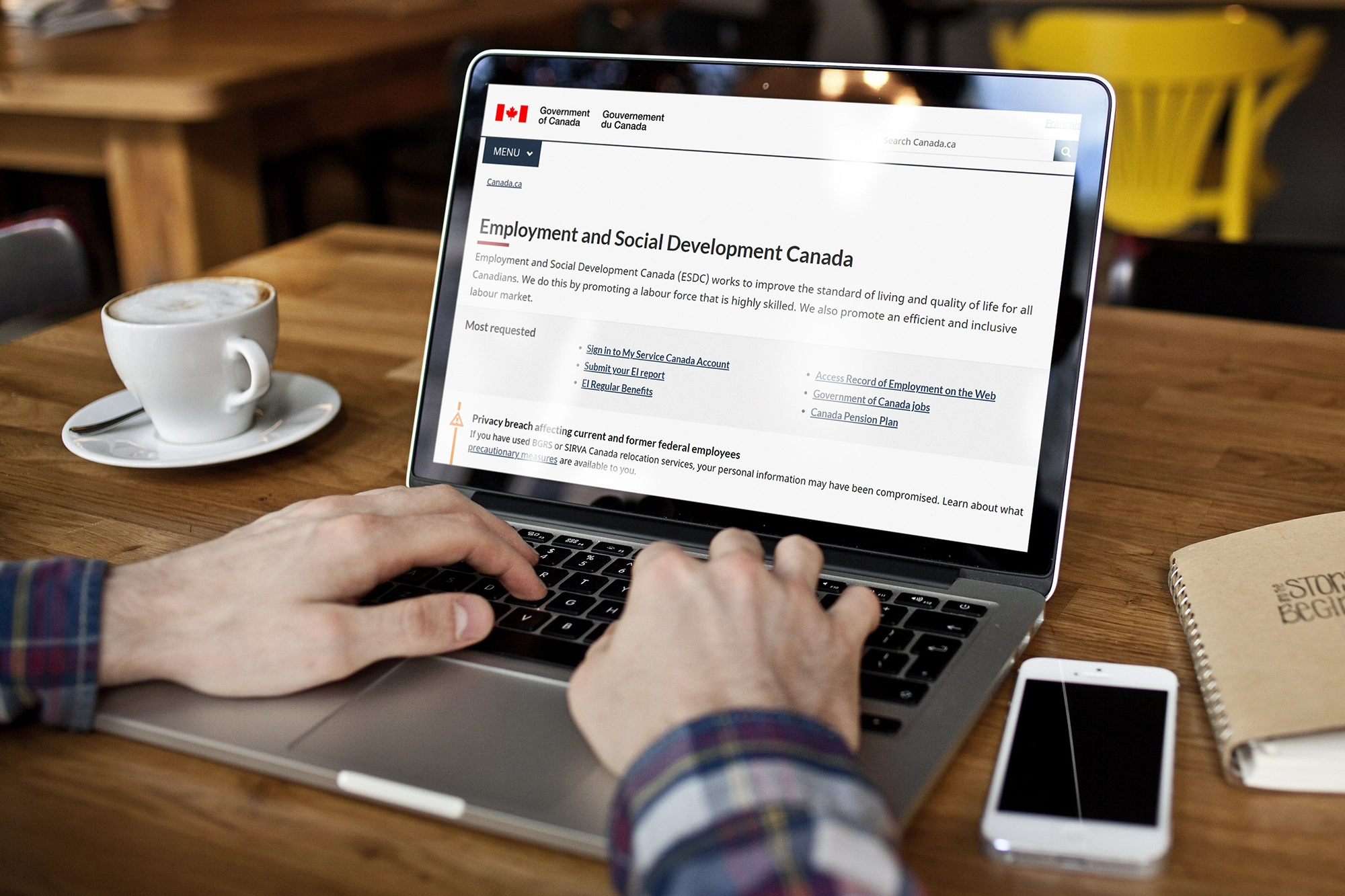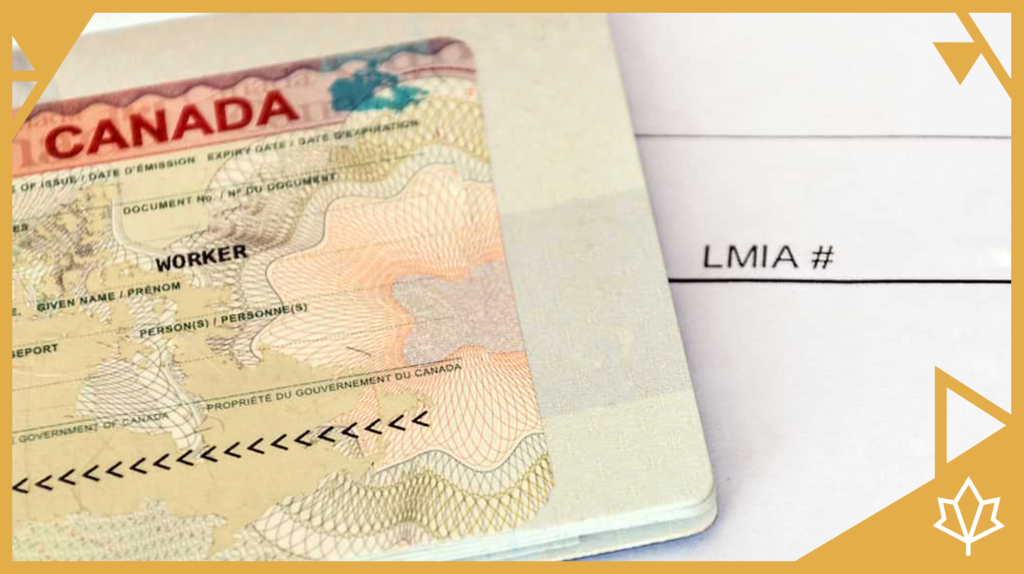Navigating the Labour Market Impact Assessment (LMIA) process can be complex for Canadian employers looking to hire foreign workers. To help clarify the process, we’ve compiled answers to some of the most frequently asked questions about LMIAs.
Jump ahead:
- What is a Labour Market Impact Assessment (LMIA)?
- When is an LMIA required?
- How do I apply for an LMIA?
- How much does it cost to apply for an LMIA?
- What are the advertising requirements for an LMIA?
- How long does it take to process an LMIA application?
- What factors are considered in the LMIA assessment?
- How long is an LMIA valid for?
- Can an LMIA be used for multiple workers?
- What happens if my LMIA application is refused?
- Are there any exemptions to the LMIA requirement?

1. What is a Labour Market Impact Assessment (LMIA)?
An LMIA is a document that an employer in Canada may need to obtain before hiring a foreign worker. The LMIA serves as proof that there is a need for a foreign worker to fill the job and that no Canadian worker or permanent resident is available to do the job.
2. When is an LMIA required?
An LMIA is typically required when an employer wishes to hire a temporary foreign worker through the Temporary Foreign Worker Program (TFWP). It is needed for both high-wage and low-wage positions, as well as for jobs under specific streams, such as Global Talent Stream.. However, some work permit categories, like those under the International Mobility Program (IMP), are LMIA-exempt.
3. How do I apply for an LMIA?
To apply for an LMIA, employers must submit an application to Employment and Social Development Canada (ESDC). The application must include detailed information about the job, the recruitment efforts made to hire Canadian workers, and the wage offered. Employers must also pay a processing fee for most LMIA applications.

4. How much does it cost to apply for an LMIA?
The cost to apply for an LMIA is $1,000 CAD per position for most employers. This fee is non-refundable, even if the LMIA application is refused. Some categories, such as those hiring under the Agricultural Stream, may have different fee structures.
5. What are the advertising requirements for an LMIA?
Employers are required to advertise the job in Canada for at least four consecutive weeks before applying for an LMIA. The job must be advertised on the Government of Canada’s Job Bank, and on other platforms or in ways that are relevant to the job and industry. This is to ensure that Canadians and permanent residents have the first opportunity to apply for the position.
6. How long does it take to process an LMIA application?
The processing time for an LMIA application can vary depending on the stream under which it is submitted. Generally, it can take several weeks to a few months. Some streams, such as the Global Talent Stream, have expedited processing times of around two weeks. Employers should plan ahead and consider these timelines when applying for an LMIA.
7. What factors are considered in the LMIA assessment?
When assessing an LMIA application, ESDC considers several factors, including:
- The impact of hiring a foreign worker on the Canadian labour market.
- Whether the job offer is genuine.
- The wages and working conditions offered to the foreign worker.
- The employer’s efforts to recruit and hire Canadian workers.
- Whether hiring the foreign worker will result in the creation or retention of jobs for Canadians.
8. How long is an LMIA valid for?
An LMIA is typically valid for six months from the date of issuance. During this time, the foreign worker must apply for a work permit. If the work permit application is not submitted within this period, a new LMIA application may be required.
9. Can an LMIA be used for multiple workers?
Yes, an LMIA can be used to hire multiple foreign workers for the same position. However, the LMIA application must clearly indicate that it is for multiple hires, and each worker will need their own work permit.

10. What happens if my LMIA application is refused?
If an LMIA application is refused, employers will receive a letter explaining the reasons for the refusal. Employers can choose to address the issues and reapply, or they may explore other avenues, such as hiring under an LMIA-exempt category. Consulting with an immigration professional can help identify the best course of action.
11. Are there any exemptions to the LMIA requirement?
Yes, certain work permits under the International Mobility Program (IMP) are exempt from the LMIA requirement. These include permits issued under international agreements like USMCA (formerly NAFTA) or CETA, intra-company transfers, and others. Workers in these categories can apply for a work permit without the need for an LMIA.
Conclusion
Understanding the LMIA process is essential for Canadian employers looking to hire foreign workers. By addressing these common questions, we hope to clarify the steps and requirements involved in obtaining an LMIA. If you have further questions or need assistance with the LMIA process, consider consulting with a licensed immigration professional to guide you through the process.
Disclaimer: the information in this blog is valid as of publication date October 1 2024, and does not act or substitute in any way as legal advice.



